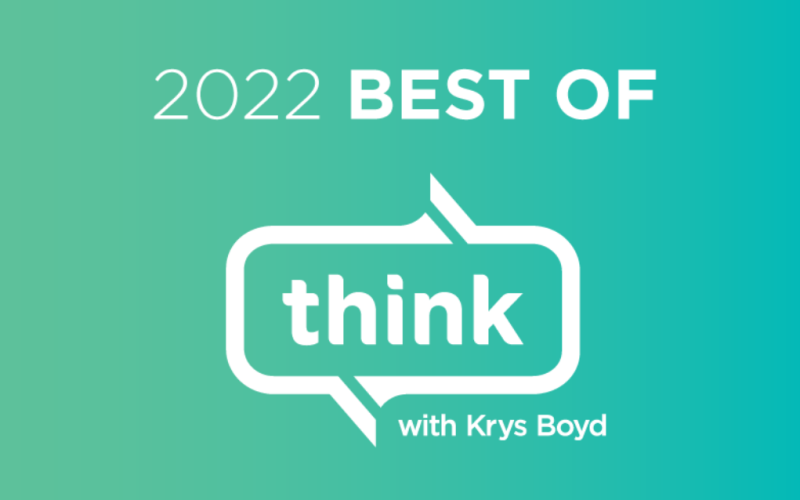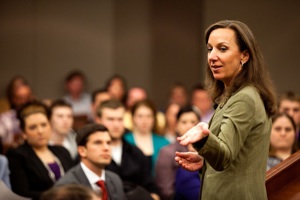From December 19-30, we’ll be showcasing some of our most popular Think conversations of 2022. We leaned heavily on our podcast audience for suggestions as these show were among the most downloaded episodes of the year. We also took staff favorites into account. We hope you enjoy listening to the Best of Think!
How animals perceive reality (12/19, 1 p.m. CT)
Ed Yong, Pulitzer Prize–winning science writer on staff at The Atlantic, discusses what seems like animal magic powers – from magnetic fields and sonar to complex vision and heightened smell.
What medical science didn’t know about vaginas (12/20, 1 p.m. CT)
Science journalist Rachel E. Gross discusses the researchers and biologists working to better understand the uterus, ovaries, and vagina outside of just baby-making faculties.
Would you really be happier with someone else? (12/21, 1 p.m. CT)
Psychologist Joshua Coleman explains how our culture of individualism puts pressure on relationships and how to know when it’s time to walk away.
Your attitude about aging could be a self-fulfilling prophecy (12/22, 1 p.m. CT)
Becca Levy, a professor of epidemiology and psychology, discusses the beliefs around aging and how policy changes and positive thinking can create successful outcomes. Her book is “Breaking the Age Code: How Your Beliefs About Aging Determine How Long and Well You Live.”
His violin was his ticket out. Then it went missing (12/23, 1 p.m. CT)
Author Brendan Nicholaus Slocumb joins us to talk about his novel, a thriller called “The Violin Conspiracy.”
A wandering mind is a creative mind (12/26, 1 p.m. CT)
Cognitive neuroscientist Moshe Bar explains why divided attention can lead to bigger discoveries — from lessening anxiety to better connecting the dots of our daily lives.
What the South has to say about America (12/27, 1 p.m. CT)
Imani Perry, professor of African American studies at Princeton, discusses her return to her Southern home in Alabama with fresh eyes, weaving in the stories of the good-tempered with a darker history.
How immigrants use food to connect their old and new lives (12/28, 1 p.m. CT)
Madhushree Ghosh talks about her memoir, taking us on a trip through America to South Asia, where she recounts the recipes that have given her insight into her own rich lived experiences.
How to make your anxiety work for you (12/29, 1 p.m. CT)
Tracy Dennis-Tiwary, a psychology and neuroscience professor, explains why, she says, anxiety is tied to hope, and why linking it to disease is an outmoded way of thinking.
Neil deGrasse Tyson on why we should think more like scientists (12/30, 1 p.m. CT)
Astrophysicist Neil deGrasse Tyson joins us to make a case for the rationality of science—and to help us look at global challenges in new ways.



